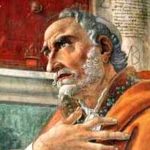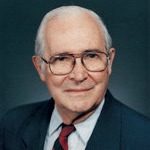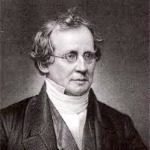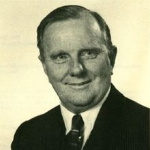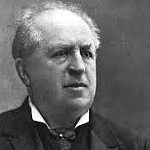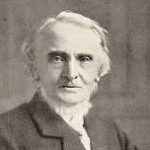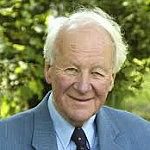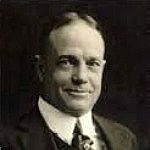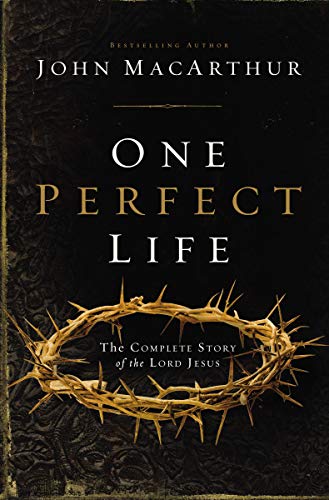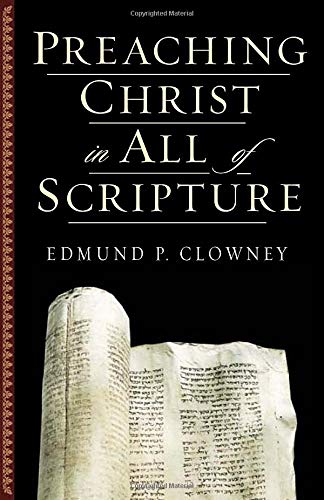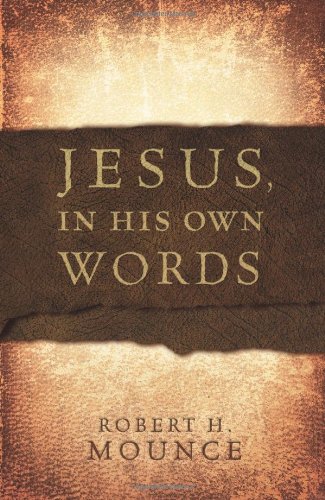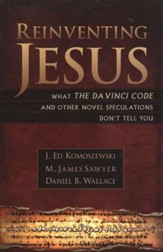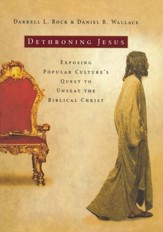Quotes about Jesus_Christ-Supremacy
Jesus Christ is not valued at all until He is valued above all.
Wherefore all theology, when separated from Christ, is not only vain and confused, but is also mad, deceitful, and spurious; for, though the philosophers sometimes utter excellent sayings, yet they have nothing but what is short-lived, and even mixed up with wicked and erroneous sentiments.
Any other Jewish teacher made very sure that his teaching was documented with extensive quotations from Scripture and with the names of his teachers added to give weight to his opinion; his authority must always be second-hand. But not Jesus. He simply laid down the law.
Taken from Jesus the Radical by R.T. France. Copyright (c) 1989, InterVarsity Christian Fellowship/USA. Used with permission of InterVarsity Press, P.O. Box 1400, Downers Grove, IL 60515. www.ivpress.com, p. 204.
Every man who approaches Christ seems to feel the same thing – He is the ideal of that man. To the artist Christ is the One altogether lovely. To the educator He is the master teacher. To the philosopher He is the wisdom of God. To the lonely, He is a brother; to the sorrowful, a comforter; and to the bereaved, the resurrection and the life. To the sinner, He is the Lamb of God that takes away the sin of the world.
All divine names and titles are applied to Him. He is called God, the mighty God, the great God, God over all; Jehovah; Lord; the Lord of lords and the King of kings. All divine attributes are ascribed to Him. He is declared to be omnipresent, omniscient, almighty, and immutable, the same yesterday, today, and forever. He is set forth as the creator and upholder and ruler of the universe. All things were created by Him and for Him; and by Him all things consist. He is the object of worship to all intelligent creatures, even the highest; all the angels (i.e., all creatures between man and God) are commanded to prostrate themselves before Him. He is the object of all the religious sentiments; of reverence, love, faith, and devotion. To Him men and angels are responsible for their character and conduct. He required that men should honour Him as they honoured the Father; that they should exercise the same faith in Him that they do in God. He declares that He and the Father are one; that those who had seen Him had seen the Father also. He calls all men unto Him; promises to forgive their sins; to send them the Holy Spirit; to give them rest and peace; to raise them up at the last day; and to give them eternal life. God is not more, and cannot promise more, or do more than Christ is said to be, to promise, and to do. He has, therefore, been the Christian’s God from the beginning, in all ages and in all places.
In Christ is the yes, the grand consummating affirmative, to all God’s promises. He is the horn of salvation raised up for us by God, “as He spake by the mouth of His holy prophets which have been since the world began” (Luke 24:44). The covenant promises addressed to Abraham and his seed are realized in His single person (Gal. 3:16). To the believer, therefore, Christ is all, not merely as fulfilling a word of the past, but as Himself being the very living Word of God, faithful and eternal. In Him all fullness dwells (Col. 1:19): wisdom, righteousness, sanctification, redemption are to be found in Him alone (1 Cor. 1:30). There is nothing which is not in Him, who is the First and the Last, the Beginning and End (Rev. 22:13).
No single piece of our mental world is to be hermetically sealed off from the rest, and there is not a square inch in the whole domain of our human existence over which Christ, who is Sovereign over all, does not cry: “Mine!”
In Christ, as a great storehouse, lie all the riches of spiritual wisdom, the massive ingots of solid gold which when coined into creeds and doctrines are the wealth of the Church. All which we can know concerning God and man, concerning sin and righteousness and duty, concerning another life, is in Him Who is the home and deep mine where truth is stored… The central fact of the universe and the perfect encyclopedia of all moral and spiritual truth is in Christ, the Incarnate Word, the Lamb slain, the ascended King.
Missions is about the worship of Jesus. The goal of missions is the global worship of Jesus by His redeemed people from every tribe, tongue, and nation. The outcome of missions is all peoples delighting to praise Jesus. And the motivation for missions is the enjoyment that His people have in Him. Missions aims at, brings about, and is fueled by the worship of Jesus.
Missions by David Mathis taken from Don’t Call it a Comeback, edited by Kevin DeYoung, copyright 2011, Crossway Books, a division of Good News Publishers, Wheaton Illinois 60187, www.crosswaybooks.org, p. 225.
The Holy Spirit never intended to occupy the center stage in the life of the church. Yes, He is the dynamic behind every Christian life. That is His role; that is His ministry (cf. Acts 1:8; 2 Cor. 3:18; Eph. 5:18). However, when He is thrust into the limelight by man, such is not in accord with the will of God as revealed in Scripture. Our Lord Jesus Christ is to have the preeminence in all things (cf. Col. 1:13-18). The Spirit’s ministry focuses upon revealing the Lord Jesus Christ and in exalting Jesus before all (cf. John 15:26; 16:13-15)… When people talk more about the Spirit than the Lord Jesus Christ, such an orientation points to error in the church.
Charismatic Challenge by John Napier, Providence House Publishers, 2003, p. 136. Used by permission. All rights reserved.
We may often be baffled by the reality of the power of evil as it is manifest in our circumstances. Sometimes that power seems so overwhelming that we are unable to praise within the circumstances of our life. It is then that we do well to recall the words of the Apostle Paul. When writing amidst difficult circumstances to the Church at Ephesus he could say, ‘Giving thanks always for all things unto God.’ He had come to know that no matter what the source of the evil, if we are in Christ, and surrounded by Him as by an atmosphere, all evil has to pass through Him before it comes to us (Robert Norris).
As surely as men standing in Jerusalem once saw Him slowly descending the Mount of Olives and then ascending the opposite hill into the city, so surely shall the world one day see the Son of Man descending the heavens. Not then shall He come as the meek and lowly: He shall come with power and great glory. Not then shall He come riding on an ass: He shall come in a cloud, the emblematic carriage of deity. Not then shall he have to borrow a donkey: then His advance preparations shall be the roaring of the sea and the shaking of the powers of the heavens (David Gooding).
We realize that He is not merely a personal Lord and Savior who is worthy of individual approval. Ultimately, Jesus is the cosmic Lord and Savior who is worthy of everyone’s eternal praise.
Taken from Follow Me by David Platt. Copyright © 2013 by David Platt. Used by permission. Website: Radical.net. Page 77.
In Colossians 1:18 we are commanded to give Jesus Christ “first place in everything.” First place “among” everything is bad theology. In other words, Jesus Christ is above everything else that I love. Women, it’s great to love your husband more than other men, but Jesus must not be embraced from that perspective. Right theology is first place “in” everything. Jesus is above all things and is honored in the heart of everything we do. In other words, we do all things through Him and for Him (ride a bike, talk to a friend, serve at work, watch a movie, listen to music, play golf, sweep the floor, etc.). With Christ, there is absolutely no division between the sacred and the secular. If there is, we fall into the category of idolatry.
I would propose that the subject of the ministry of this house, as long as this platform shall stand, shall be the person of Jesus Christ. I am never ashamed to avow myself a Calvinist, but if I am asked to say what is my creed, I think I must reply, “It is Jesus Christ.” The body of divinity to which I would pin and bind myself forever, God helping me, is Christ Jesus, who is the sum and substance of the gospel, who is Himself all theology, the incarnation of every precious truth, the all-glorious personal embodiment of the way, the truth, and the life.
God’s plan was to bring into being a host of sons and daughters whom He would indwell; through whom He would live and manifest Himself; and in and through whom Christ would reign supreme. We are the beneficiaries of that plan. God, in His love and grace, has made us a part of His plan. But we are not the center of it; Christ is.
[Jesus Christ] is the reason, the goal, the aim, the intent, the point, the purpose, the end, the terminus, the consummation and culmination of every molecule that moves (Col. 1:16).
One Thing, Christian Focus, © Enjoying God Ministries, 2004, p.107. www.enjoyinggodministries.com. Used by Permission.
[Jesus] put Himself in a moral category in which He was alone. Everybody else was in darkness; He was the light of the world. Everybody else was hungry, He was the bread of life. Everybody else was thirsty; He could quench their thirst. Everybody else was sinful; He could forgive their sins. Indeed, on two separate occasions He did so, and both times observers were scandalized. They asked, “Why does this fellow talk like that? He’s blaspheming! Who can forgive sins but God alone?” (Mark 2:5-7; Luke 7:48-49). If Jesus claimed authority to forgive the penitent, He also claimed authority to judge the impenitent.
Taken from: Why I am a Christian by John R.W. Stott. Copyright(c) 2003 John R. W. Stott. Used by permission of InterVarsity Press, PO Box 1400, Downers Grove, IL 60515, p. 35.
Christianity is summed up in the two facts: Christ for us and Christ in us.
There are two hundred and fifty-six names given in the Bible for the Lord Jesus Christ, and I suppose this was because He was infinitely beyond all that any one name could express.
The Word of God became flesh. The Son of God became man. The Lord of All became a servant. The Righteous One was made sin. The Eternal One tasted death. The Risen One now lives in men. The Seated One is coming again.
In Christ we have:
A love that can never be fathomedA life that can never die
A righteousness that can never be tarnished
A peace that can never be understood
A rest that can never be disturbed
A joy that can never be diminished
A hope that can never be disappointed
A glory that can never be clouded
A light that can never be darkened
A purity that can never be defiled
A beauty that can never be marredA wisdom that can never be baffled
Resources that can never be exhausted.
[Jesus Christ] is tender without being weak, strong without being coarse, lowly without being servile. He has conviction without intolerance, enthusiasm without fanaticism, holiness without Pharisaism, passion without prejudice. This man alone never made a false step, never struck a jarring note. His life alone moved on those high levels where local limitations are transcended and the absolute Law of Moral Beauty prevails. It was life at its Highest.
In each case (in Matthew) there is no mere parallel being drawn: there is eschatological transcendence. That, Jesus, for example, is not merely another great Solomon: He is “greater than Solomon” (12:42). Likewise, He is “greater than the temple” (12:6), “greater than Jonah” (12:41). In the mist of all this, the clear implication is that He is also David’s greater son (12:3-4); in fact, this is precisely Jesus’ point in 22:45. Further, He is “Lord even of the Sabbath” (12:8). Similarly, Jesus is not merely a son of Abraham, privileged as that is. He is the son of Abraham par excellence, the one in whom the patriarchal promises reach their goal (1:1). He is not simply a representative of Israel – He is the true Israel (2:15, 16-18). His name is “Joshua,” but He is greater than His forebear and brings a greater deliverance: “for He shall save His people from their sins” (1:21). Moreover, it would have been very wrong to erect booths for Moses, Elijah, and Jesus: these two other men, great as they were, deserve no equal place with Jesus. “Hear Him” was the word from Heaven (17:5). He is greater than Elijah and greater than Moses – greater than the prophets and even the law itself.
